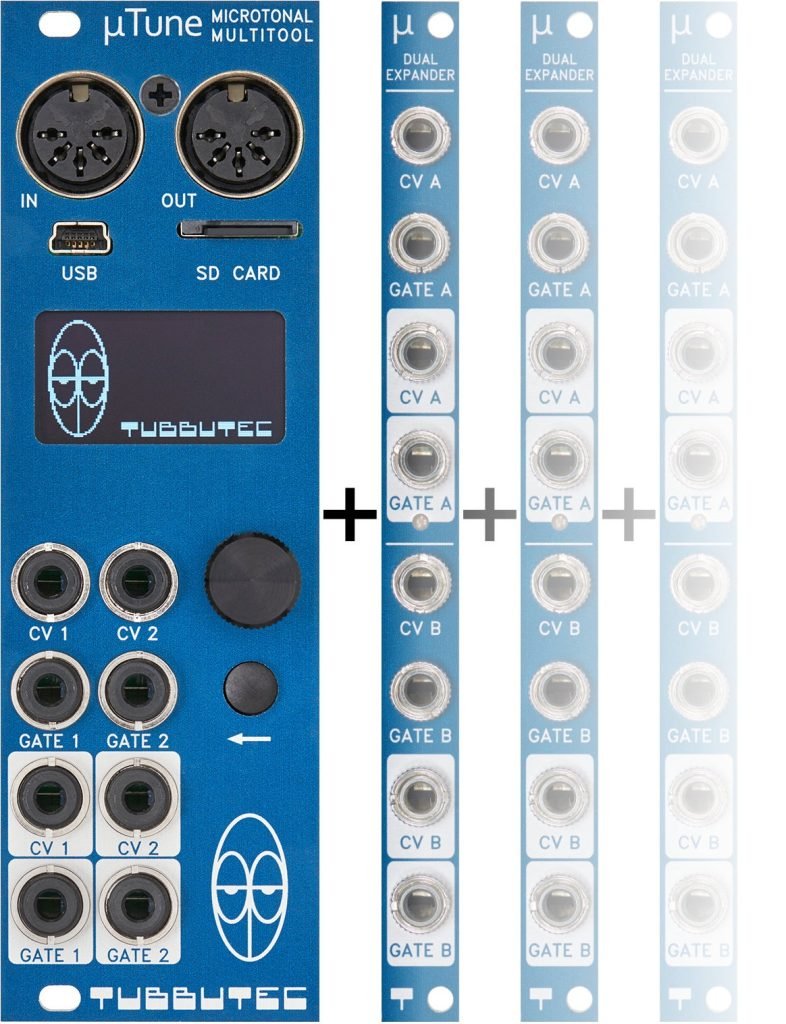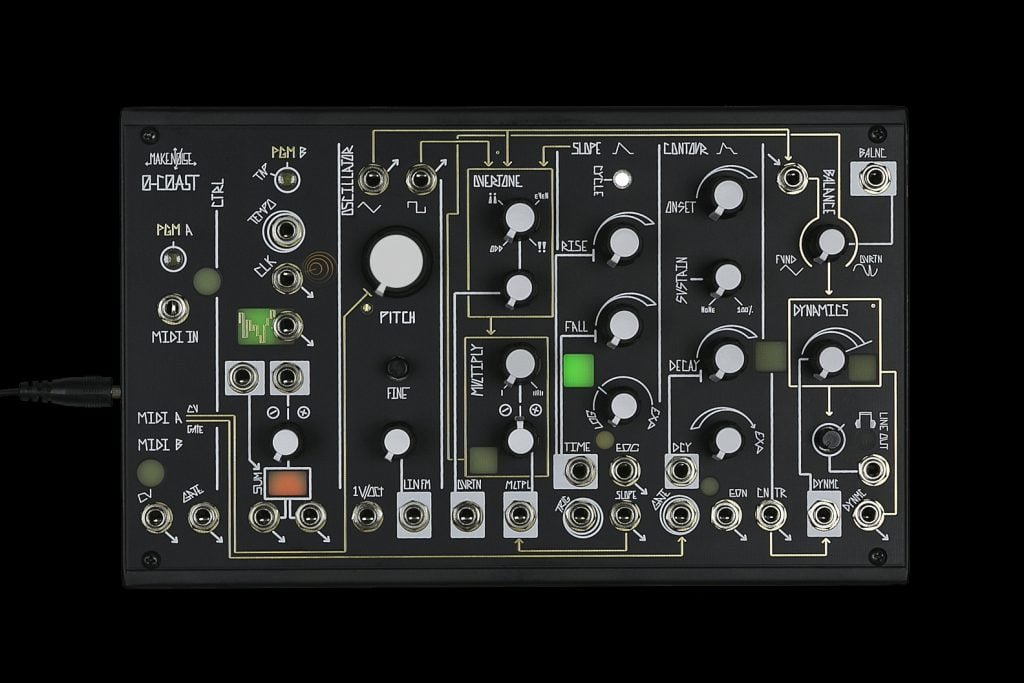QUICK GUIDE
hardware i
-
As with the other quick guides, these hardware and synth recommendations are aimed at people near the beginning of their music making, although that is not to say that they are not suitable for full-time professionals too. And the opposite of that advice also holds true: If you are starting out and want a Buchla 200e because you KNOW it is for you (and you have £15000) then you should go for it.
-
Hardware can be excellent in providing a live interface for creation. You make different kinds of music depending on how it’s made. Aphex Twin, for example, has several studios set up with totally different machines, which allows totally different styles of creation.
-
The single greatest resource for synth and hardware owners is Loopop’s stellar tips and tricks guide which covers just about every imaginable facet of synthesis, studio know-how, sampling, looping, MPE etc etc etc. It really is incredibly useful. it is for Patreon supporters only but this also helps support his free Youtube channel in which he reviews and gives tips on new equipment in an un-bettered style.
synthesisers
- Synths are super personal. What is amazing for one person is unbearable to another. So don’t always just believe a review.
- Some synths may have serious workflow issues, which can make them a pain to use, even if they sound great. You will just find you never reach for them, so always try them out if you can.
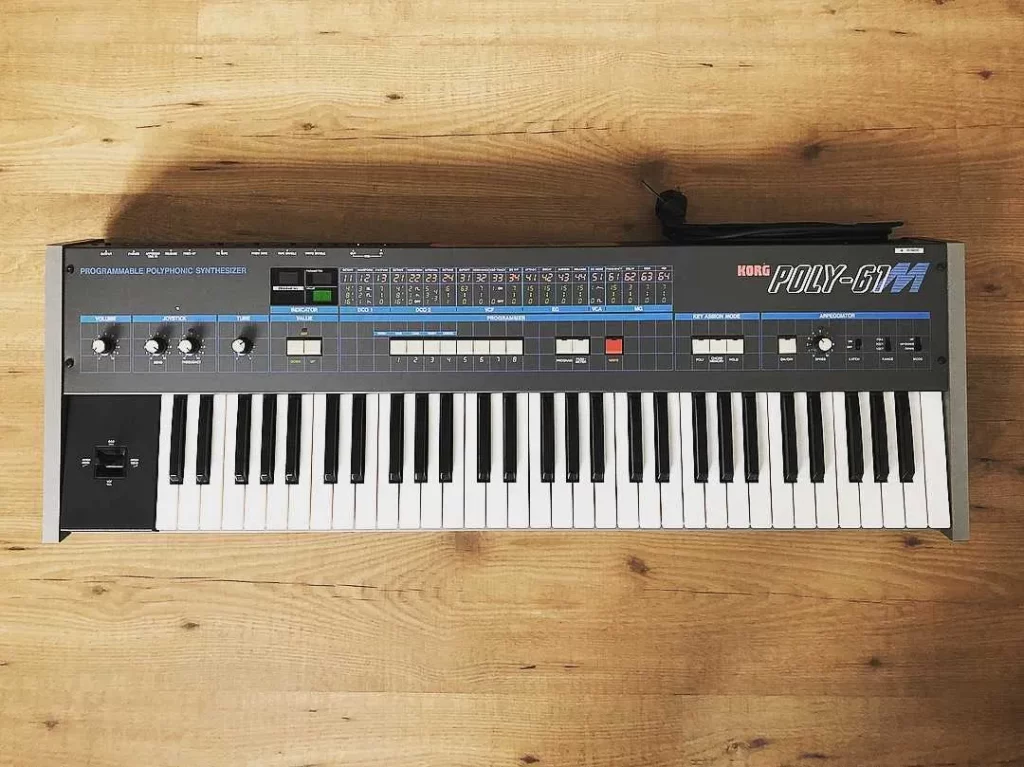
Just look at the lack of knobs and buttons, and the long written lists of hieroglyphics.
- Another facet of the above point is that many synths of the past which had beautiful sound engines but appalling user interfaces (Korg Prophecy, Roland Alpha Juno 2, Korg Poly 61) can now be controlled by modern software, or even specialist hardware interfaces. This can make them bargains. Check out Kiwi Patch Editor and Soundforce for synth-specific controllers, and Patchbase for software front-ends.
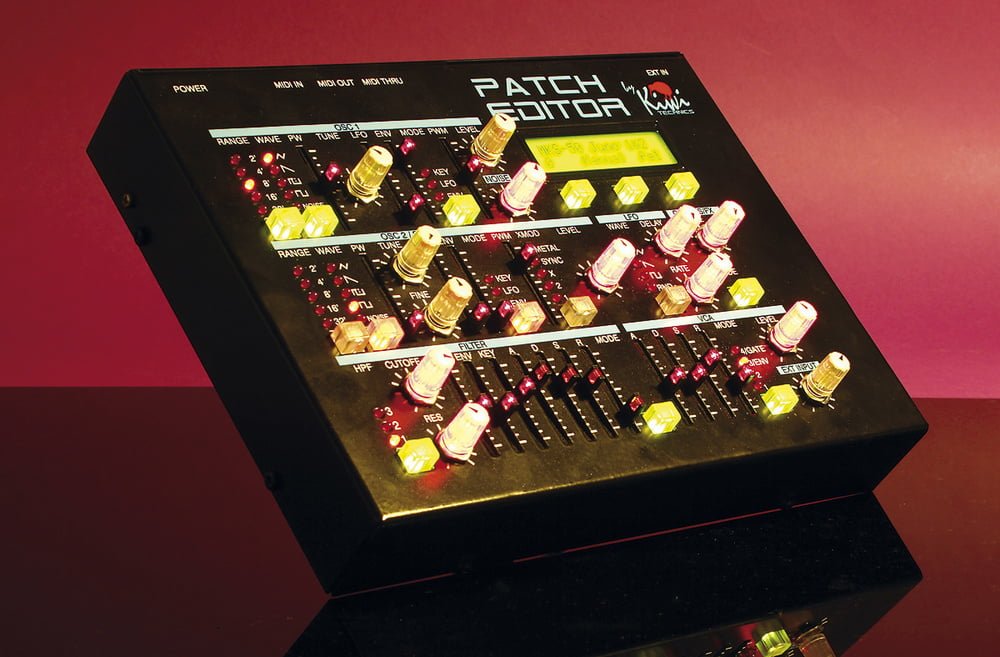
Now no longer made, but just as valid as it ever was
- I have had many synths for short times, and the one I have used the most in reality is a tiny cheap Yamaha CS Reface. It is just very immediate and sounds the way I like a synth to sound (My other favourite ever synth I owned was the Nord Modular G2 and Modular Micro, and now the Osmose). It even has an internal looper player so you can self-accompany. It’s only downside is the lack of preset storage, but Yamaha have a service called Soundmondo which lets you store and share them.
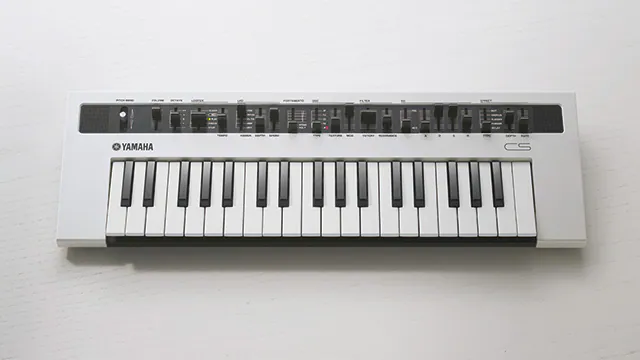
The sliders feel nice, and the different modes cover a wealth of sonic ground
- If I was to recommend trying some cheap ones – I’d say generally try and get a poly synth. A mono synth only plays one note at a time, which to me is too limiting. But you may disagree.
- Korg Minilogue XD – best cheap poly for my money. Keyboard, good sound and expandable with Korg’s open-source software which means it can be made to do all sorts of new stuff by other developers. (Monologue is the cheaper Mono version)
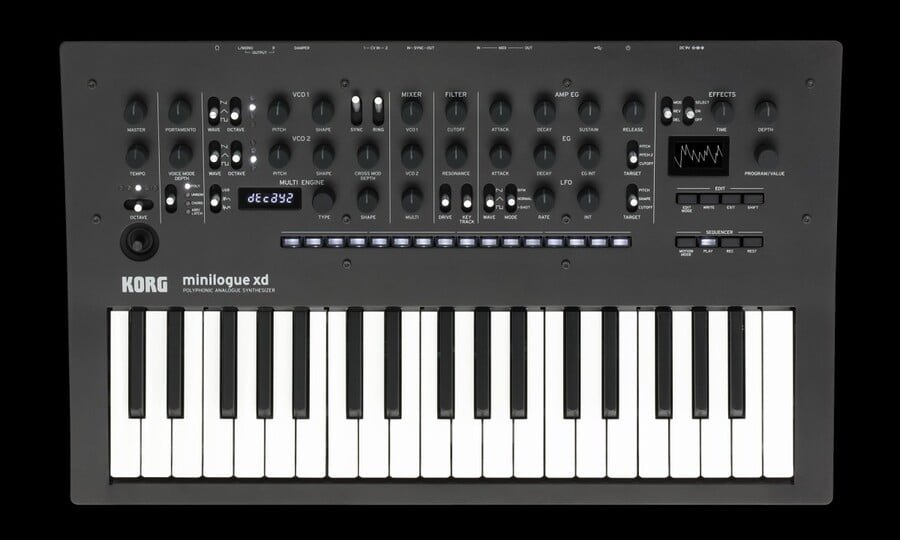
- Roland Boutique series – these can be used with an extra tiny keyboard but come without one. Very small but they do offer incredible sound for the money. They also feel well built. Jupiter 8, Juno 60 etc in tiny form. Not for the sausage-fingers amongst you.
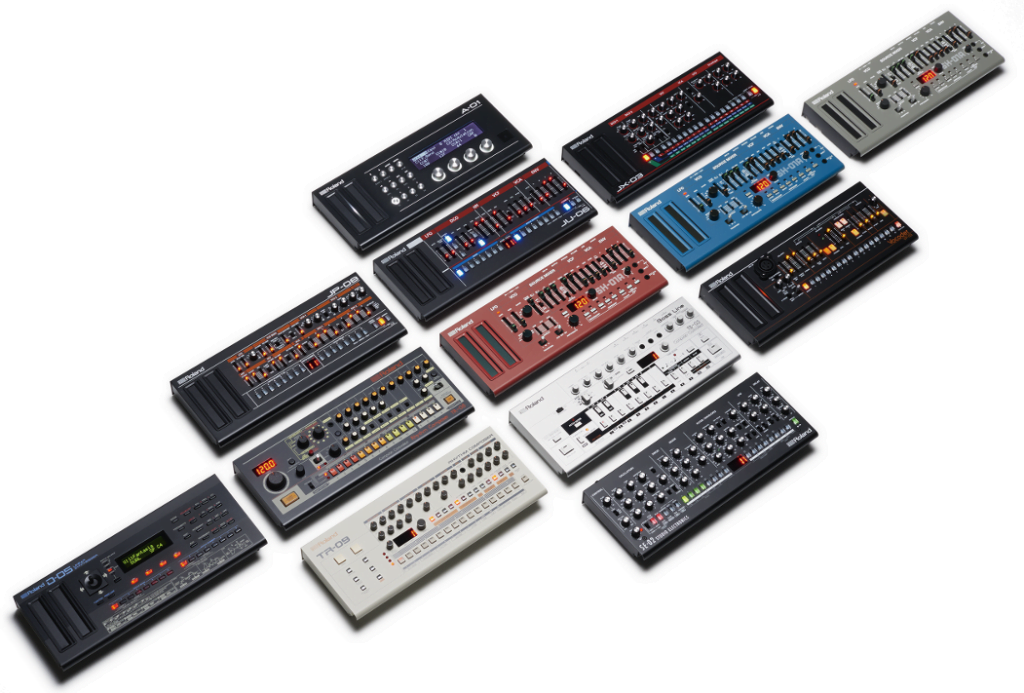
- Yamaha Reface – small versions of classic Yamaha synth emulations, and largely very well judged. I love the CS, which emulates the sounds of Yamaha’s incredible CS series synths, and in a way that is so immediate and tweakable with few controls. The others cover organs, electric pianos and FM synthesis. They are also made to a reassuringly high standard, and are battery powered if needed.
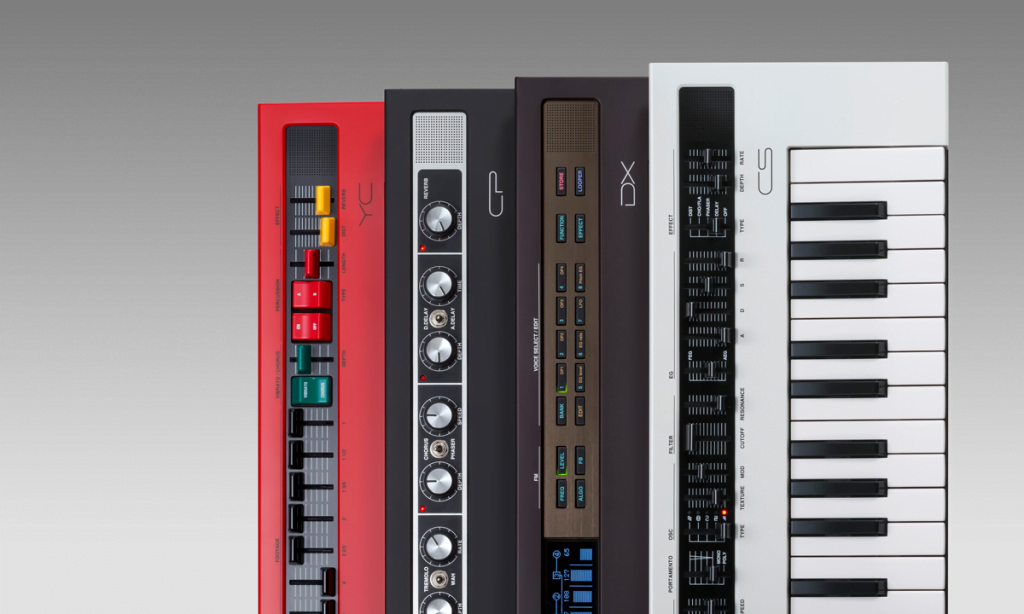
- Arturia Microfreak. Created from the original modular oscillator design of Mutable Instruments’ Braids, and then expanded to make it even more capable and diverse. This is the best synth at the cheap end of the market that caters to experimenters, and features the widest array of synthesis engines. The keyboard is fine, but an acquired taste, but you can always play it from an external keyboard if it bothers you.
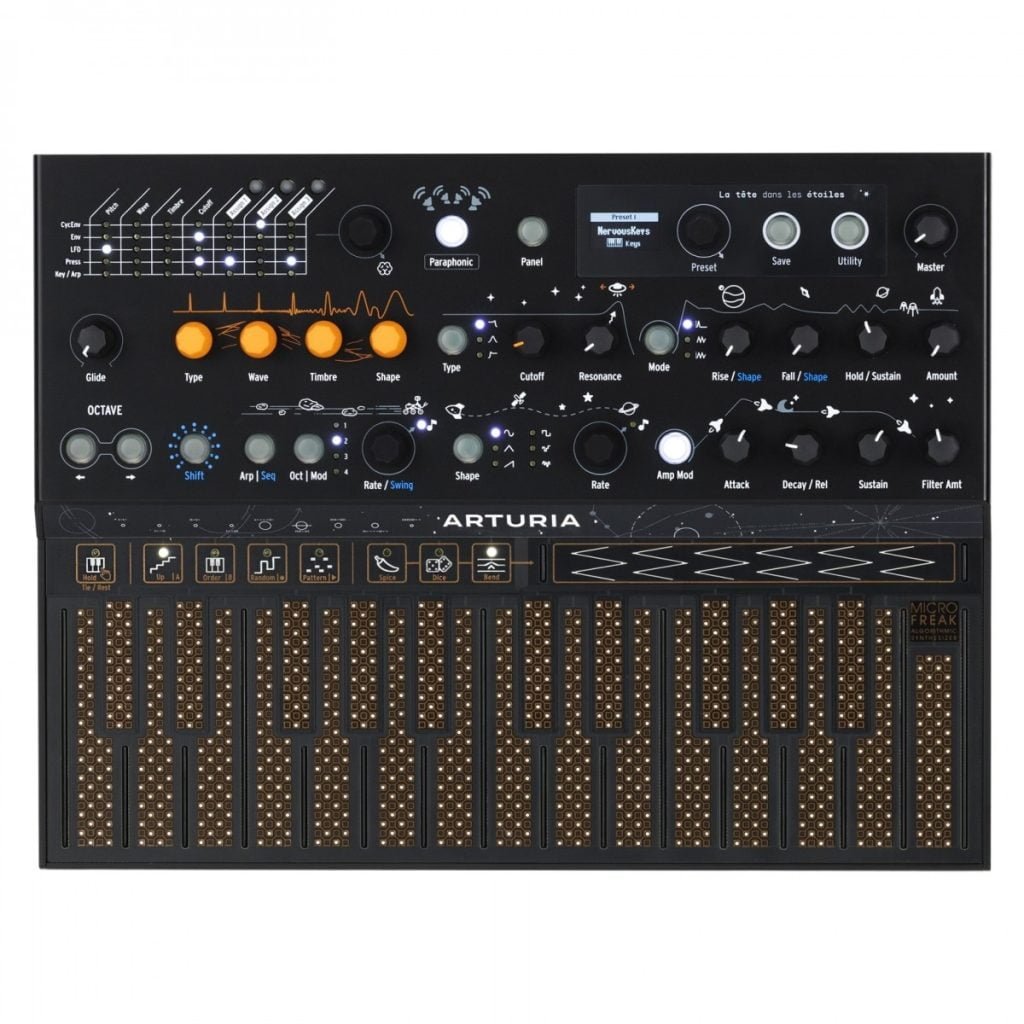
- There are many many smaller manufacturers making cool small synths, but bear in mind that the R&D budget of the big companies means that you get more for your money at the cheap end. I always avoid Behringer as they break easily and are too cheap. The world has enough electrical landfill.
- It’s also worth keeping an eye on Kickstarter for those rare gems which appear, and which can be had cheap by putting your deposit down early. I bought my Expressive E Osmose this way, and it is the best money I ever spent.
modular
- Too huge a subject on its own really, and I shall perhaps cover it in more detail in future. It is an open-ended playground of sound, but demands attention and some learning.
- I would always advise doing homework before buying and play with modules on VCV Rack.
- Also go down to your local synth shop if you have one and play around.
- The second-hand prices have come down a lot, so do research on Modulargrid and VCV Rack, and then do shopping on Gumtree and Ebay.
- I have previously found that good power is very important for some modules so I recommend 4ms Row Power rather than some of the bottom end alternatives.
- Also great for FX – you can get a little mini case and fill it with 4 modules of weirdness just for FX. I use Mutable Instruments ‘Clouds’ and ‘Rings’ especially, and a Moog mini case.
- Mutable Instruments are no longer in production, but their sourcecode was made freely available so you can find a larghe number of clones for not too much money. This code also went into other synths, such as the Arturia Microfreak.
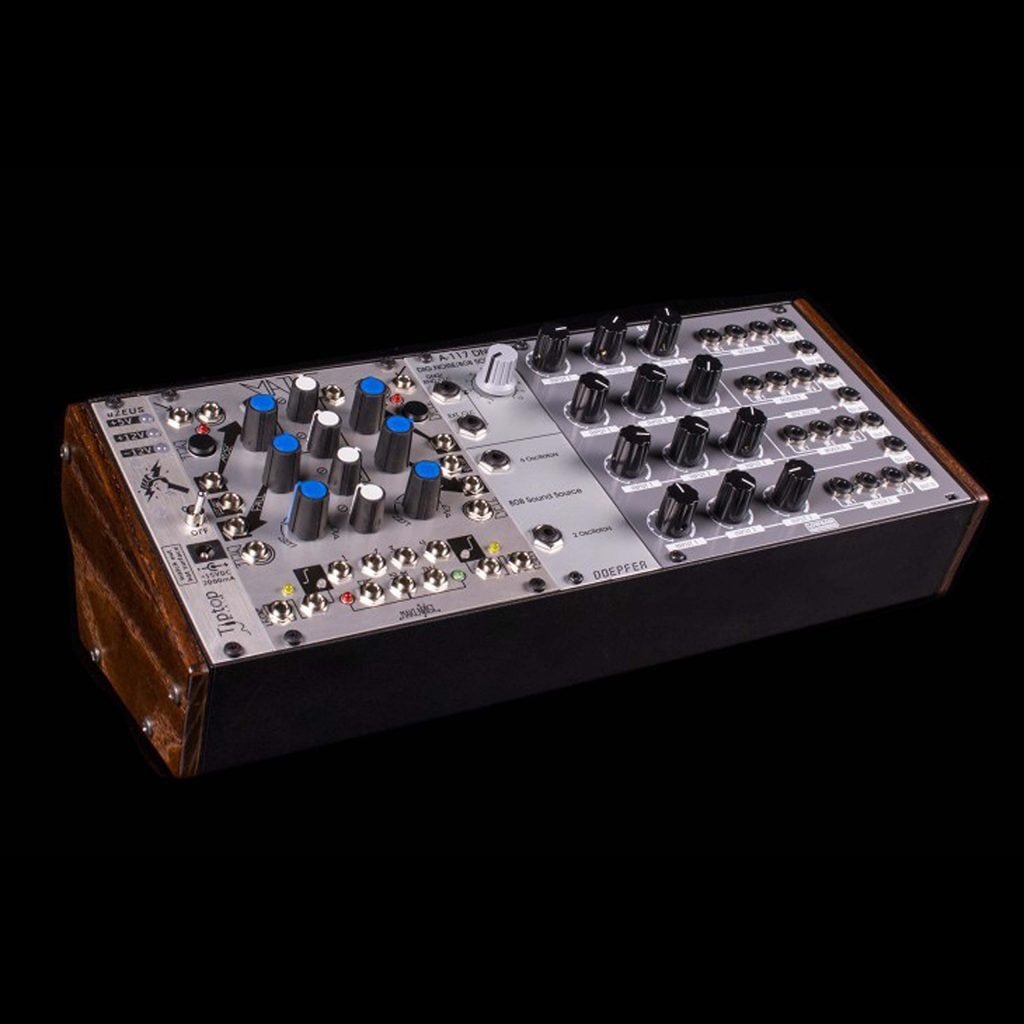
Moog mini case
- I also love my Tubbutec MuTune. This allows the use of alternative tunings with modular synths via CV/Gate or other synths via MIDI.
